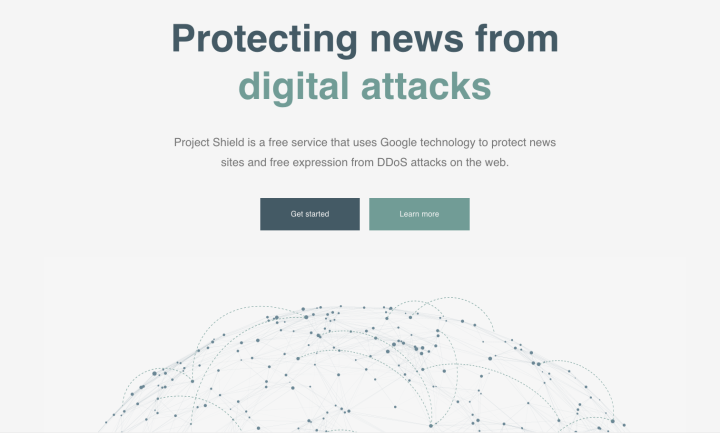
For the last few years, Project Shield has existed in a testing capacity, focusing especially on news sites that are frequently the targets of DDoS attacks as a sort of censorship tool. As Cohen writes in his blog post, “The Web is an increasingly critical tool for news organizations … Often it’s the primary distribution channel for critical, investigative work that shines a light into the darkest corners of society and the economy — the kind of reporting that exposes wrongdoing, causes upset and brings about change.” And as the number of these smaller, independent news organizations grow, so too have the frequency of attacks that have attempted to silence them.
So as of February 25, any and all independent news sites will be able to apply to Project Shield — preference will be given to smaller outlets, as they often lack the resources to sufficiently guard against such malicious attempts themselves. “Just about anyone who’s published anything interesting has come under an attack at some point,” Project Shield team leader George Conard told Wired. “The smaller and more independent voices often don’t have the resources, whether technical or financial, to really put good protections in place … That’s where we come into the picture.”
Once an outlet joins Project Shield, it’s able to change its domain name configuration so that visitors are redirected to a Google server, which in turn acts as a sort of “reverse proxy” that can “filter out malicious traffic and cache some elements of the site to lighten the load on the website’s own computers,” Wired explains.
This, Google hopes, will help protect journalism, and ultimately improve upon “the health of the Internet by mitigating against a significant threat for publishers and people who want to publish content that some might find inconvenient.”
“A free and open Internet depends on protecting the free flow of information — starting with the news,” Cohen concludes.
Editors' Recommendations
- The Google Pixel 8a’s 6 biggest upgrades over the Pixel 7a
- Does the Google Pixel 8a have a headphone jack?
- The best resume templates for Google Docs
- Google Drive vs. Dropbox: which is best in 2024?
- Google’s AI just got ears


